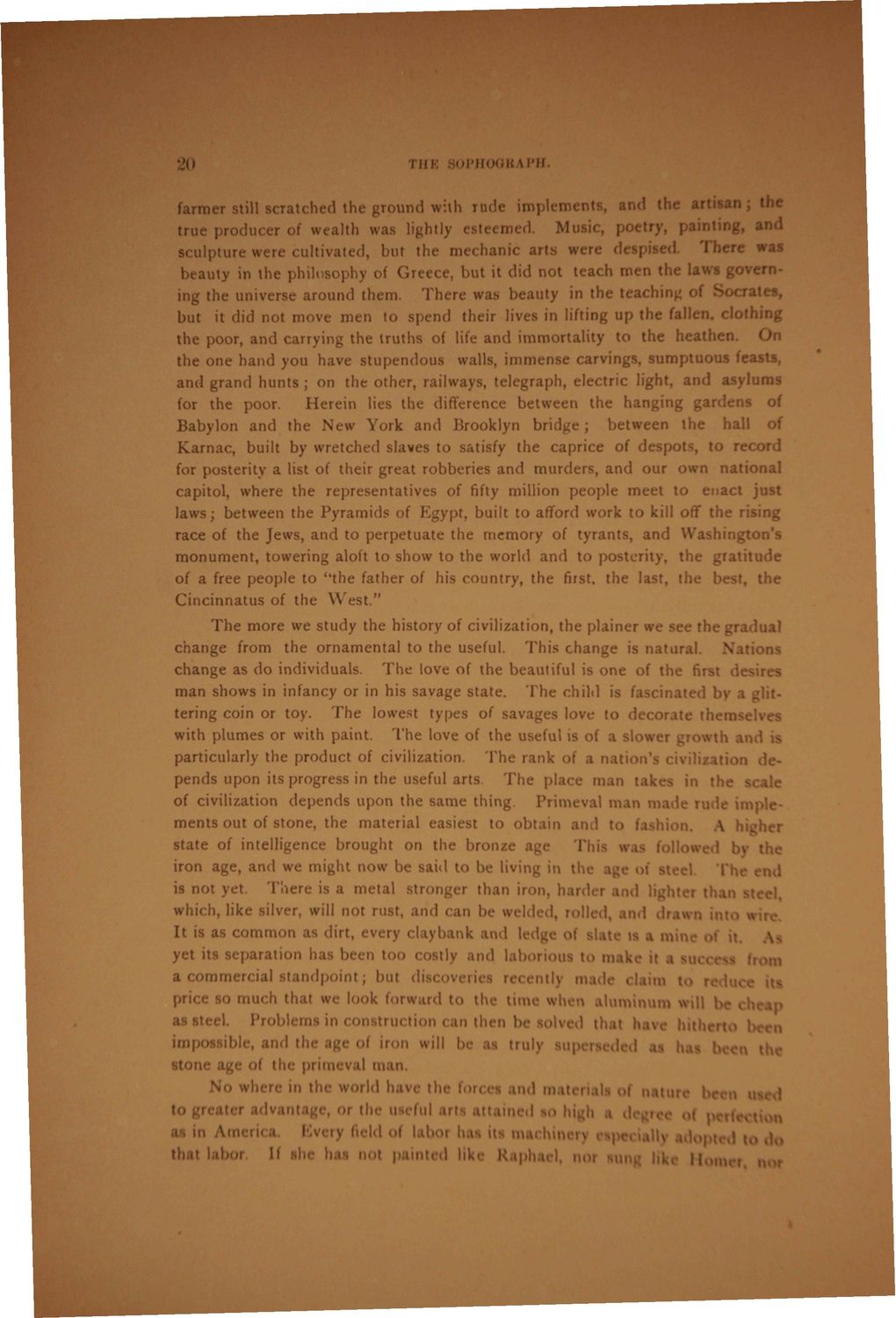| |
| |
Caption: Sophograph - 1889
This is a reduced-resolution page image for fast online browsing.

EXTRACTED TEXT FROM PAGE:
T] rn< i'H. farmer still scratched the grou 3 with rude impl ient and the i isa the true producer of wealth was lightly est Music, p a painting and ilpturewei cultivated, but the mechanic arts were despise I here was auty in the philoscj of Greece, but it did not teach men the laws gw iing the universe around th< i. There was beauty in the teacl ; of ates, but it did not move men to spend their lives in lifting up the falk loth g the poor, and carrying the truths of life and immortality to the heathen. On the one hand you have stupendous walls, imm< carvings, s nptuous feasts, and grand hunts; on the other, railways, telegraph, electric light, and asylums for the poor. Herein lies the difference between the hanging gardens of Babylon and the New York and Brooklyn bridge; ! een the hall of Karnac, built by wretch I slaves to satisfy the caprice of despot to record for posterity a list of their great robberies and murders, and our own national capitol, where the representatives of fifty million people meet to enact just laws; between the Pyramids of Egypt, built to afford work to kill off the rising race of the Jews, and to perpetuate the memory of tyrants, and Washington's monument, towering aloft to show to the world and to posterit the gratitude of a free people to "the father of his country, the first, the last, the best, the Cincinnatus of the West." The more we study the history of civilization, the plainer we see the gradual change from the ornamental to the useful. This change is natural. N'ations change as do individuals. The love of the beautiful is one of the first desires man shows in infancy or in his savage state. The child is ascinated by a glit tering coin or toy. The lowest types of savages love to decorate then es with plumes or with paint. The love of the u of a slower growth and particularly the product of civilization. The rank of a nati I'S c ilization de pends upon its progress in the u ful arts. The place man takes in the scale of civilization depends U| n the Mine thing. m d man m e rude imple< ments out of stone, the material easiest to obi n and hion. A higher state of intelligence brought on the bronze age This was follow the iron age, and we might now be said to be living in the ., eel. is not yet. There is a metal stronj than in hard* and lighter than * | which, like silver, will not rust i can be wel I, i I, and Irmwn into w It is as common as dirt, every clay bank and I. \ a mine yet its separation has been t i ( 11y a 1 laboi us to mat t a su n a commercial standj it discoveries i itlj made cla lu< price so i hat we look forward to the tin as steel. Problems in constructii can ti n be sol impossible, and the age ol ii i will be as tn St J age of the primeval man where in the \ rid have the * a n d in r i aluminui ;i that I e hith | as I || , n to ea r ad van i la -at' I to high i as m America. Kvery held ol laboi has its machinery especially adopted to do thai ii she has i I iik apha i
| |